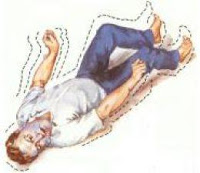Epilepsy Surgery
Epilepsy surgery is an
operation on the brain to control seizures and improve the person's quality of
life. Epilepsy surgery involves a neurosurgical procedure where an area of the
brain involved in seizures is either resected, disconnected or stimulated. The goal
is to eliminate seizures or significantly reduce seizure burden. Approximately
60% of all people with epilepsy have focal epilepsy syndromes. In 15% to 20% of
these patients, the condition is not adequately controlled with anticonvulsive
drugs. Such patients are potential candidates for surgical epilepsy treatment.
 First line therapy for
epilepsy involves treatment with anticonvulsive drugs, also called
antiepileptic drugs. Most patients will respond to one or two different
medication trials. The goal of this treatment is the elimination of seizures,
since uncontrolled seizures carry significant risks, including injury and
sudden death. However, in up to one third of patients with epilepsy, medications
alone do not eliminate seizures, and/or cause adverse effects. In these
patients, epilepsy surgery is considered as an alternate treatment method to
medications.
First line therapy for
epilepsy involves treatment with anticonvulsive drugs, also called
antiepileptic drugs. Most patients will respond to one or two different
medication trials. The goal of this treatment is the elimination of seizures,
since uncontrolled seizures carry significant risks, including injury and
sudden death. However, in up to one third of patients with epilepsy, medications
alone do not eliminate seizures, and/or cause adverse effects. In these
patients, epilepsy surgery is considered as an alternate treatment method to
medications.
There are three main
types of epilepsy surgery:
1.Surgery to
remove the area of the brain producing seizures
2.Surgery to
interrupt the nerve pathways through which seizure impulses spread within
the brain
3.Surgery to
implant a device used to treat epilepsy
Surgery is considered
only if the area of the brain where the seizures start, called the seizure
focus, can be clearly identified, and if the area to be removed is not
responsible for any critical functions, such as language, sensation and
movement. Extensive evaluation and testing are necessary to determine if
surgery is appropriate.
Who
Is a Candidate for Epilepsy Surgery?
Surgery may be an
option for people with epilepsy whose seizures are disabling and/or are not
controlled by medication, or when the side effects of medication are severe and
greatly affect the person's quality of life. Patients with other serious
medical problems, such as cancer or heart disease, usually are not considered
for epilepsy surgery.
How
Effective Is Epilepsy Surgery?
The effectiveness
varies, depending on the type of surgery. Some people are completely free of
seizures after surgery. For others, the frequency of seizures is significantly
reduced. In some cases, surgery may not be successful and a second surgery
(re-operation) may be recommended. Most patients will need to continue taking
anti-seizure medication for a year or more after surgery. Once seizure control
is established, medications may be reduced or eliminated.


No comments:
Post a Comment